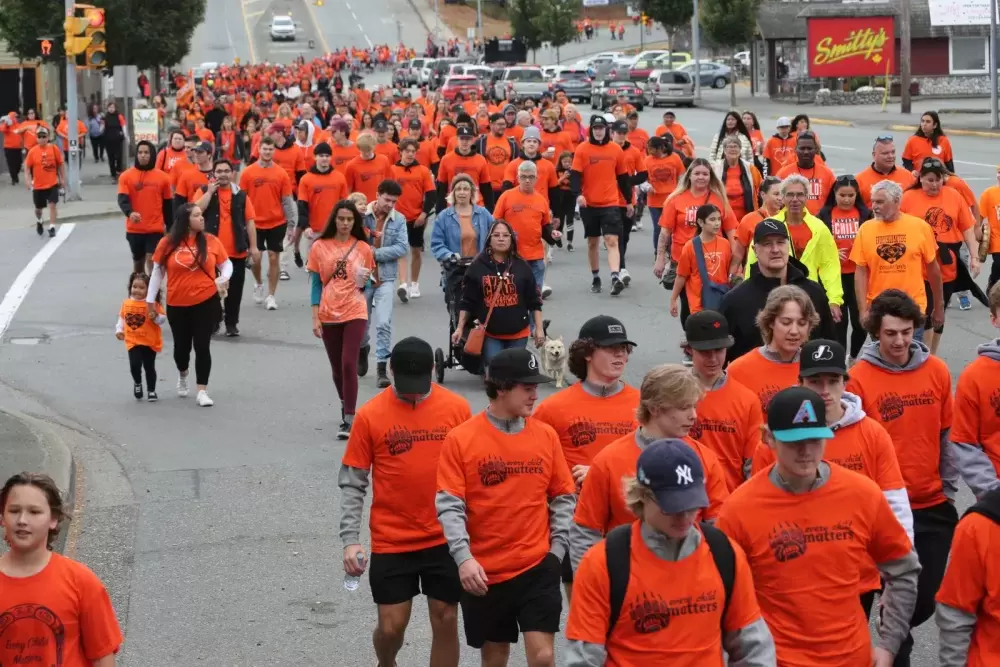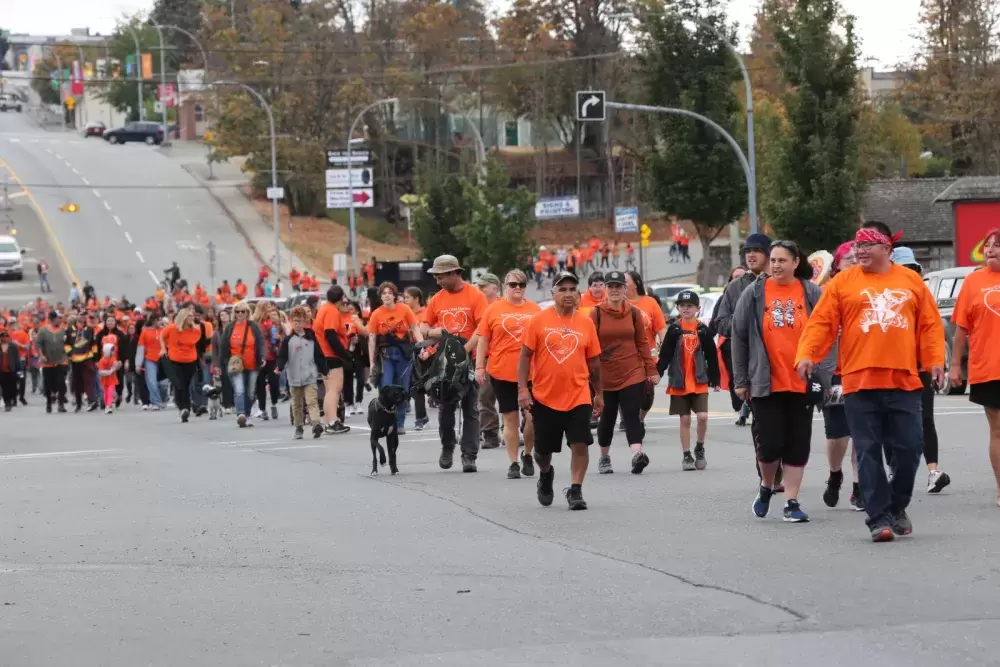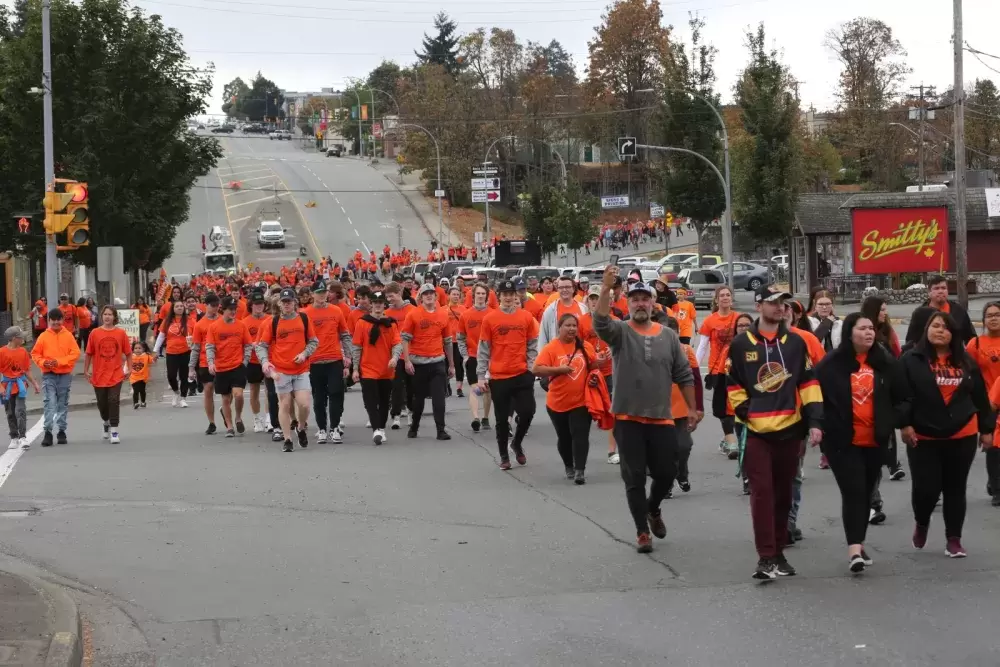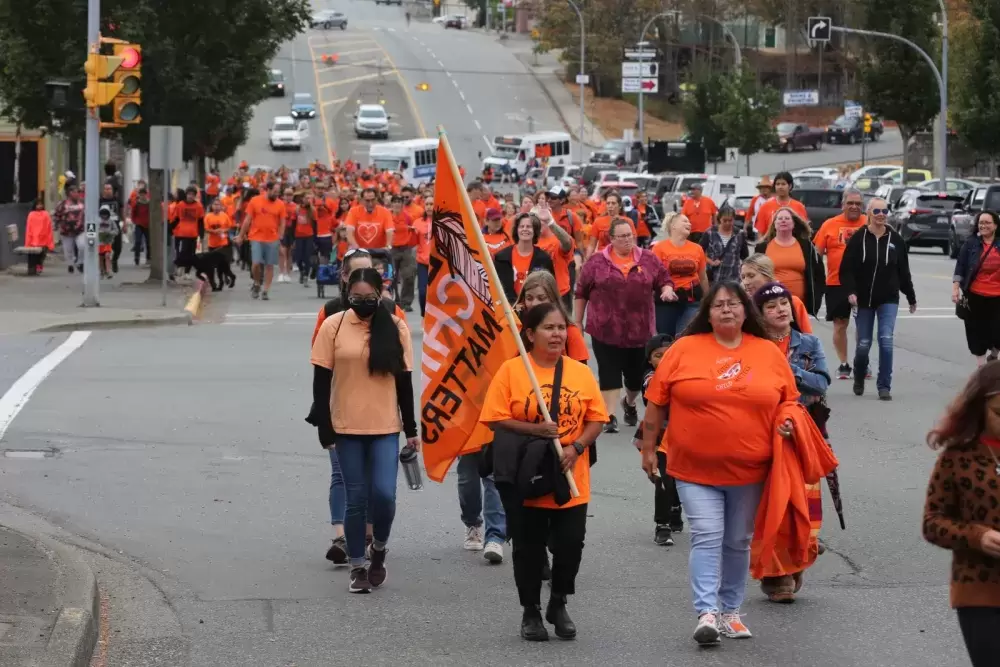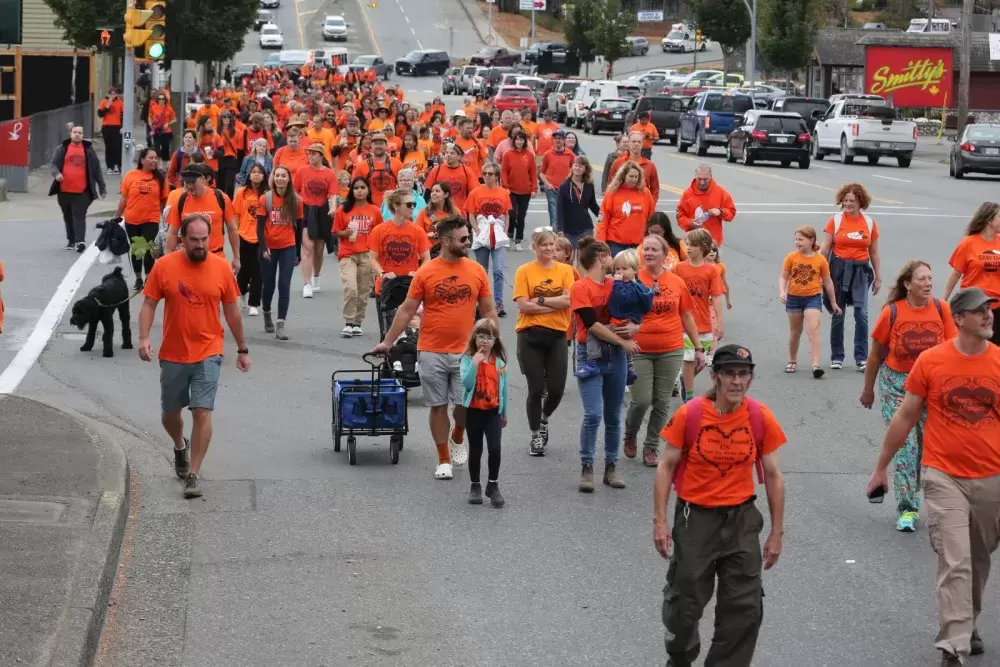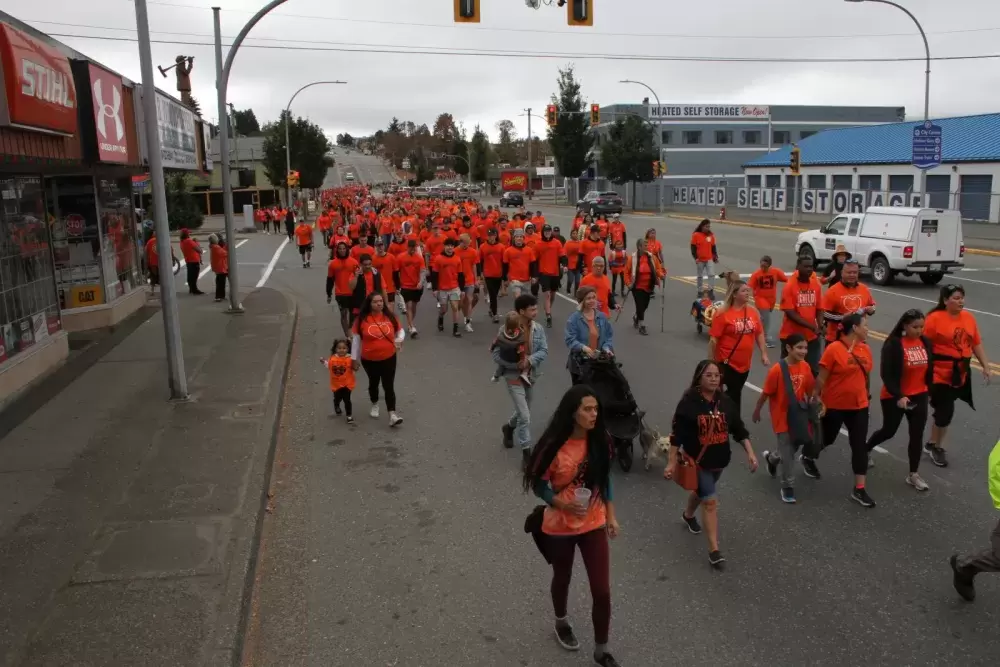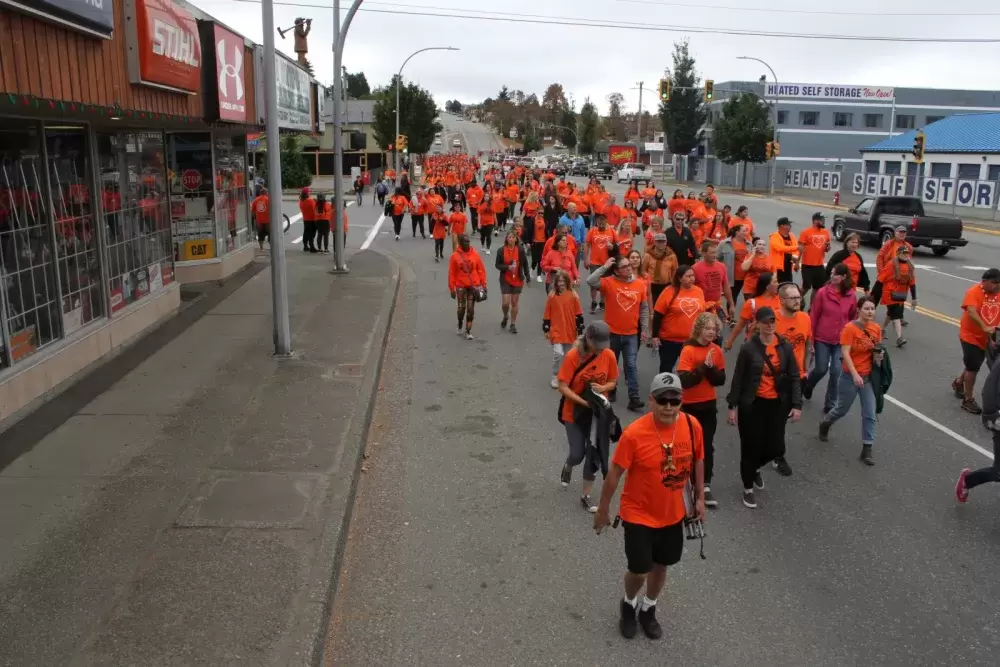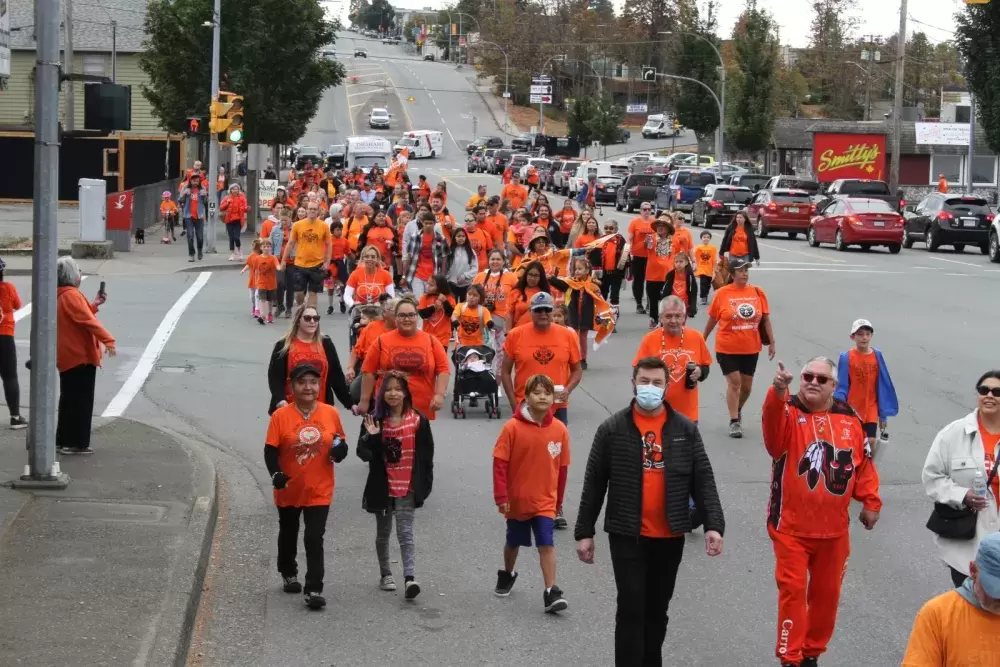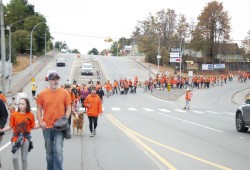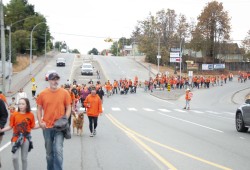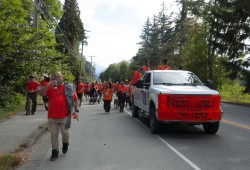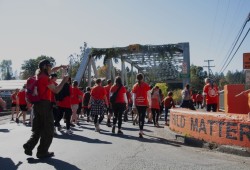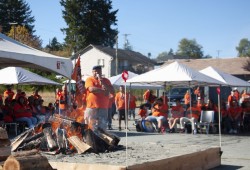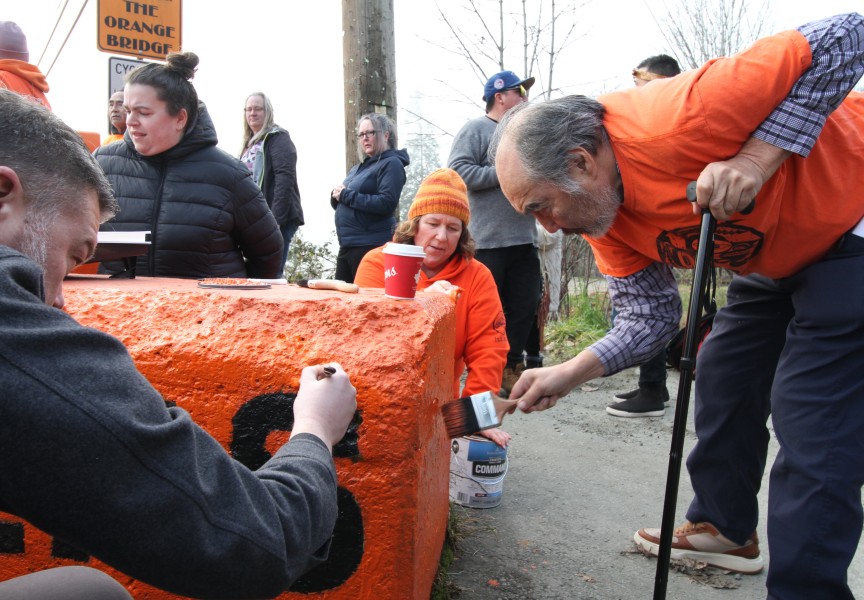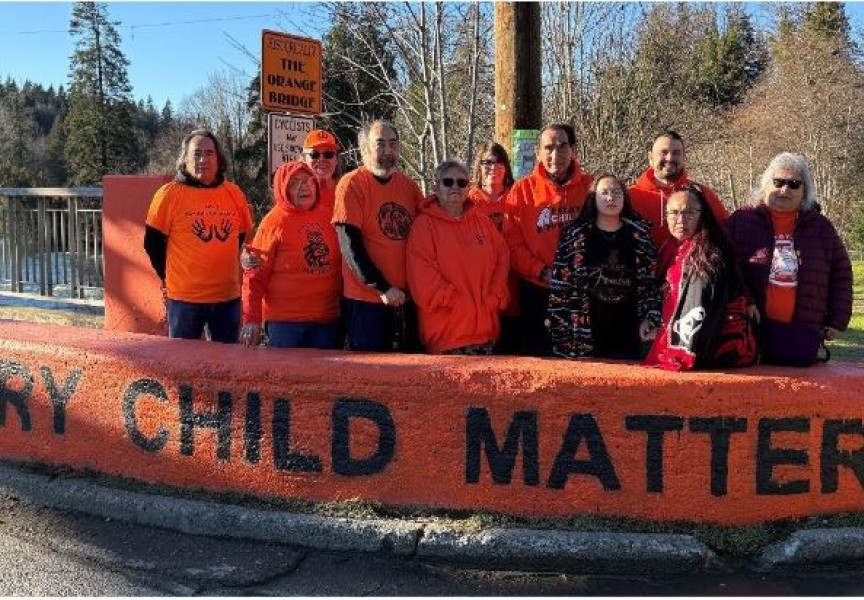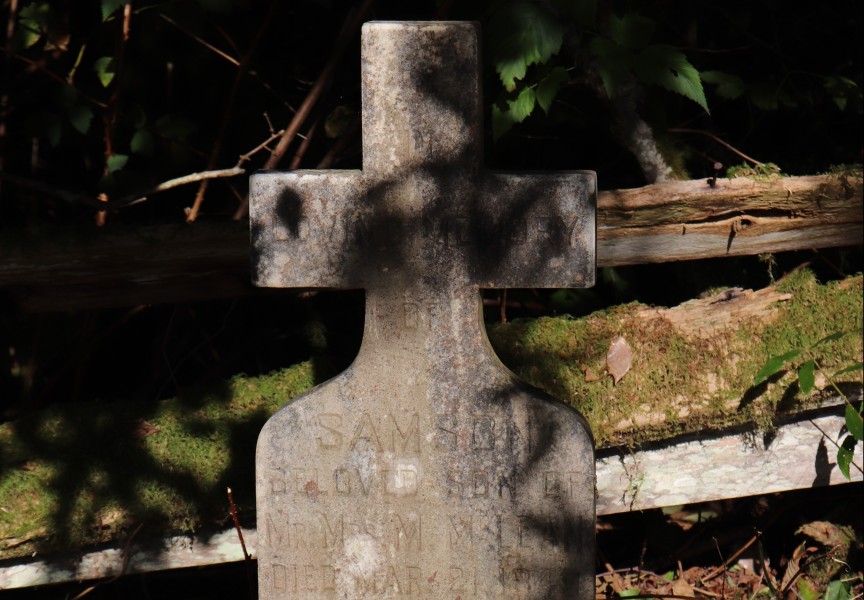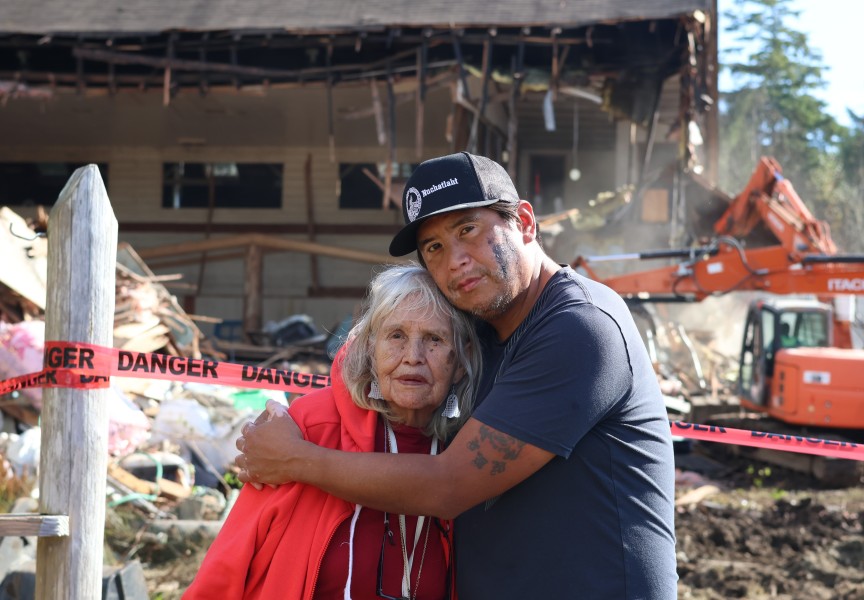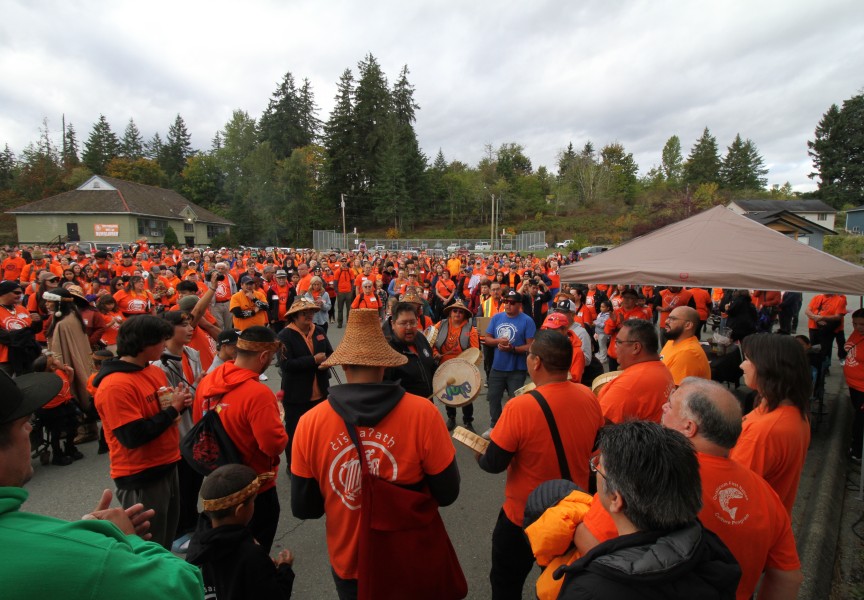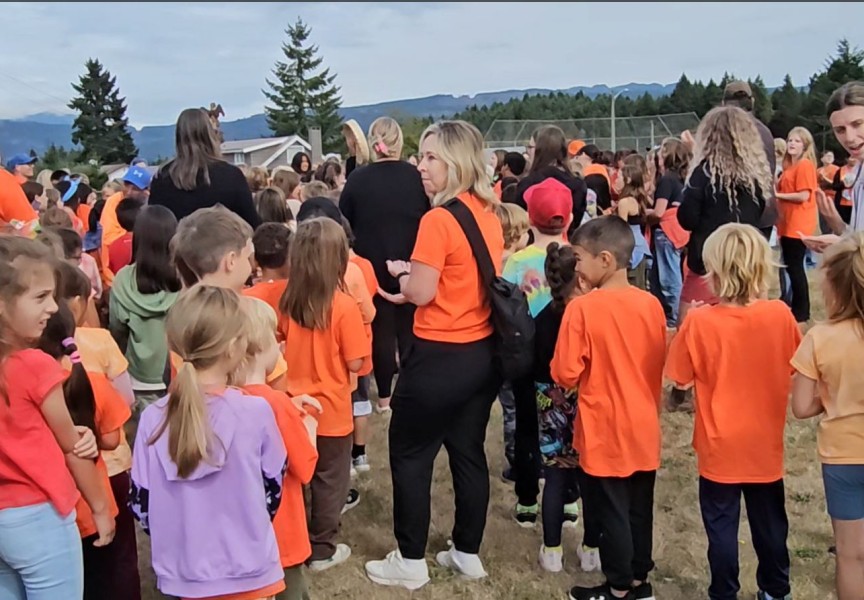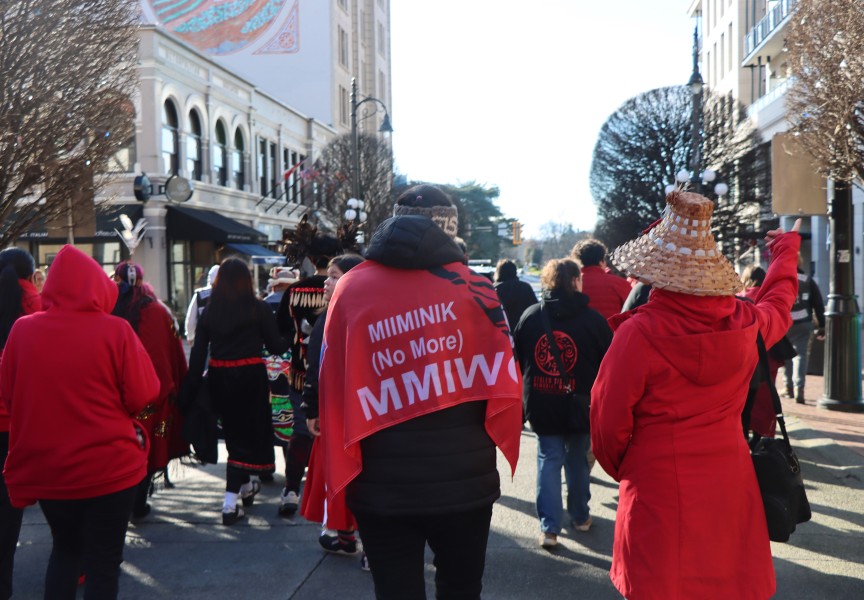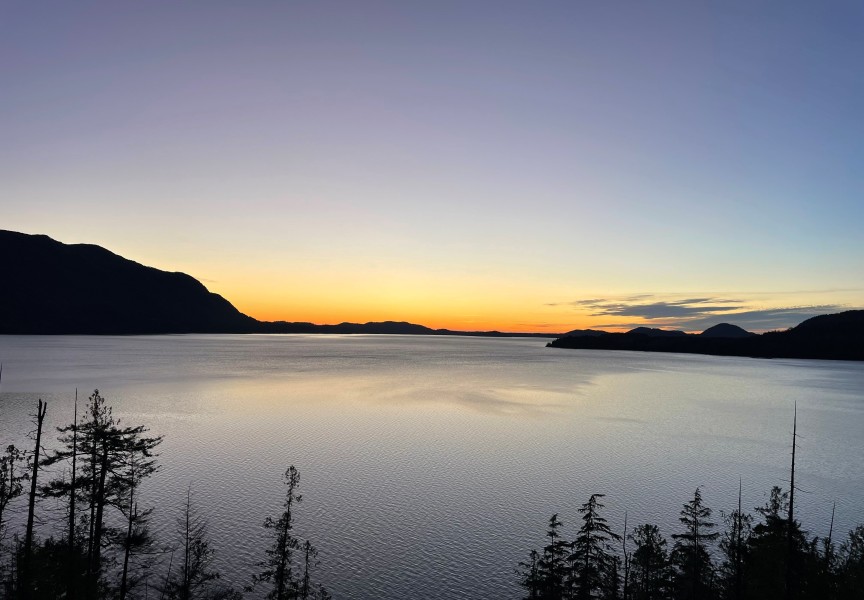On September 30th, Orange Shirt Day, also known as National Day for Truth and Reconciliation, started at the Harbour Quay in Port Alberni with an overcast sky. “Every child matters,” echoed through Port Alberni while orange took to the streets.
When Wahmeesh (Ken Watts), elected chief councillor of Tseshaht First Nation, arrived at the Harbour Quay he was taken aback by the number of people gathered in orange for the event.
“When we started [walking] and I looked down Kingsway [Ave]…it was literally shoulder to shoulder for the whole street,” said Watts. “It was pretty moving, not going to lie, like it's pretty emotional when you see stuff like that.”
Watts said this year the numbers seemed almost double to last year.
This year marked the second National Day for Truth and Reconciliation and the 10th Orange Shirt Day.
Orange Shirt Day is held to honor residential school survivors, and invoke meaningful conversations about the legacy of residential schools. It lands on September 30th because it was the time of year children would be taken from their family and placed in residential schools.
Phyllis Webstad, founder and ambassador for Orange Shirt Day, was six years old when her own bright orange shirt was taken from her at St. Joseph Mission (SJM) Residential School.
Many have joined this event, including allies showing up in solidarity.
Tour de Rock riders arrived in orange at Maht Mah’s parking lot while on their 14-day journey around Vancouver Island. Tiffany Parton, executive director of the BC Association of Chiefs of Police, said, “Today, it was just really important for us to honor and recognize this day, and pause our activities that we would normally have.”
The crowd of orange walked to Maht Mahs parking lot, the end of a seven-kilometer journey, in honor of survivors of residential schools. Once they arrived, the clouds had cleared to welcome the heat of the sun. There was a gathering around a fire for refreshments, stories, songs, and dances.
Watts said that there was a time where singing and dancing, potlatches, and language was not allowed.
“And we can still do it today because we're resilient,” he said. “Survivors did survive.”
One of the speakers, Sim’ogit Tsa Bux (Chief Willie Blackwater) spoke to the crowd about the Blackwater Plaintiff role in truth and reconciliation.
In the early 1990s, Chief Blackwater along with 21 other survivors testified in the Blackwater v. Plint case. The BC Supreme Court delivered a judgment in favor of the Blackwater Plaintiffs for the abuse they suffered while students at the Alberni Indian Residential School.
Alberni Indian Residential School (AIRS) was opened in 1891 as a day school. In 1973 AIRS was closed by Tseshaht and other Nuu-chah-nulth nations, and in 1996 the last residential school closed in Punnichy, SK.
The Orange Shirt Day walk ended at Maht Mah’s gymnasium and the Tseshaht Longhouse where the Alberni Indian Residential School once stood.
A number of residential school survivors stood and spoke their stories to the crowd of people wearing orange.
“That's why we walk, is for them now… it's this society, it's our job to help hold them up,” said Watts. “All the stuff they went through is real. It's not made up… Many children never made it home and Kamloops didn't just solidify that. People have known that we've been saying that for years. So that's why we walk.”
In May 2021, the results of ground penetrating radar indicated that the remains of 215 children were found at the former site of the Kamloops Indian Residential School.
“It started at 215…” reads on the back of some of the orange T-shirts worn. Over 4, 100 children were documented to have died while attending residential school, and 1,800 unmarked graves have been identified.
“It's honoring survivors. But it's educating Canadians and others [about] what really happened here, but it's also showing that we're resilient,” said Watts.
Kuu-us Crisis Line Society, established in August 1993, has a 24-hour culturally safe crisis line that can be reached at 250-723-4050 (for elders and adults), 250-723-2040 (for youth), and 1-800-588-8717.

